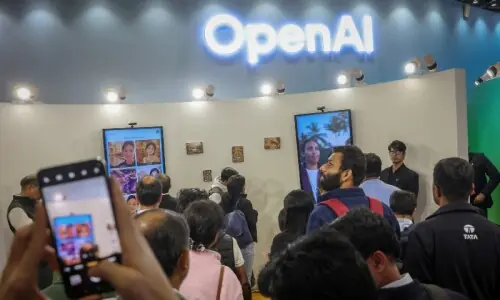NEW DELHI: The class of middle-aged, male rickshaw drivers obediently raised their hands and loudly pledged to “respect and protect women” while plying the streets of New Delhi, dubbed India's rape capital.
“Do you know even whistling at a woman or staring at her is a crime? “trainer Namrata Sharan told 150 drivers at a compulsory “gender sensitisation “class this month, referring to actions that could be considered sexual harassment.
Much has changed in the two years since the gang-rape of a 23-year-old student in Delhi that triggered international outrage and protests about India's treatment of women.
Take a look: Indian rape victim dies in hospital
Laws have been toughened to deter would-be rapists and initiatives introduced to educate men about respect and equal rights for women in the deeply patriarchal country.
But some say this month's case of a female passenger allegedly raped by an Uber taxi driver with a record of sexual attacks shows the country still has a long way to go two years after the fatal attack.
Examine: Uber taxi driver allegedly rapes woman in India
“What happened on December 16 appeared to be a turning point,” said the father of the physiotherapy student, who died from her injuries after being brutally raped on that date in 2012.
“The kind of protests that followed, laws that were changed — all this made us believe that things are changing. But it was just wishful thinking,” he told AFP ahead of Tuesday's anniversary.
 |
| Indian auto-rickshaw drivers look on as an instructor explains road sings projected onto a screen during a gender sensitisation training programme at a city transport department centre on the outskirts of New Delhi on December 12, 2014. - AFP photo |
“The city continues to be very unsafe as the Uber case shows,” said the father, who is planning a public remembrance ceremony for his daughter on Tuesday.
Mirage of safety
Women, especially young, urban professionals, in Delhi who had come to rely on web and radio-based taxis are reassessing their safety after the case last week involving controversial US-based Uber.
With GPS technology, cheap and easy smartphone use and pledges of safety, taxi services had given women a sense of independence in recent years that they had not previously enjoyed as they travelled the capital and other cities.
“For a few years there, we working women in Delhi were living in a mirage of safety provided by radio taxis,” TV journalist Sunetra Choudhury said in a blog last week.
“We all loved the idea that whenever we knew we'd be late, we could pay a professional group to arrive at our office, at our friend's, at the bar, and take us safely where we needed to go. The Uber rape has killed my urge to step out and explore my city as an adult like I should."
On Delhi's streets, women spoke of their fear of taking public transport or hiring one of the green and yellow three-wheel rickshaws known as autos after dark, relying instead on the many cab companies.
“Men will stare at you, touch you, grope you. You have to keep looking around all the time and just be safe,” said Sonam Bahri, a 28-year-old banking executive.
Others were angry that Uber had apparently failed to conduct proper background checks on its driver who allegedly raped the woman, aged in her mid-20s, as she travelled home from a night out with friends.
“I am shocked because I didn't expect a global company like Uber to be so casual with their approach,” said Mitali Gupta, 27, who works in India's IT outsourcing industry.
Uber ban
The government has banned Uber from operating in the city following the case, while the driver remains in custody on suspicion of raping the woman after she dozed off.
Explore: Indian judge sends Uber rape suspect to custody for two weeks
He is accused of obtaining a false police certificate which gave him a clean record despite being charged with molestation in 2003 and robbery and rape in 2013.
Experts say they are unsurprised by the latest case in a country where corruption is rife and rapes are reported on a daily basis.
The number of reported attacks jumped across the country by 35.2 per cent to 33,707 in 2013 from the previous year, with Delhi recording more than any other city, official figures show.
Experts attribute the rise to the fact some women seemed more determined after the 2012 gang-rape to approach authorities despite the stigma attached to rape in India.
In the class for rickshaw drivers, run by the transport department and the non-profit Manas Foundation, there was a pin drop silence when pictures of the mass street protests that followed the 2012 case were shown.
 |
| Indian auto-rickshaw drivers look on as instructor Achyuth Nanda Dyan Samantara (C) speaks during a gender sensitisation training programme at a city transport department centre on the outskirts of New Delhi on December 12, 2014. - AFP photo |
“I felt so ashamed,” driver Vimal Das said as he collected his sign reading “This responsible rickshaw respects and protects women” which he was planning to stick on his vehicle.
“How can men be so inhuman? I am going to leave behind my chauvinistic ways now. It's only when I change my mindset I can expect society to change."


































